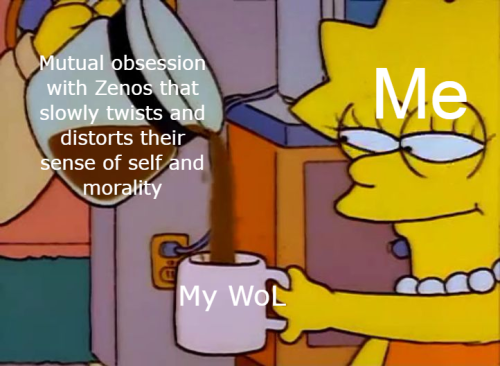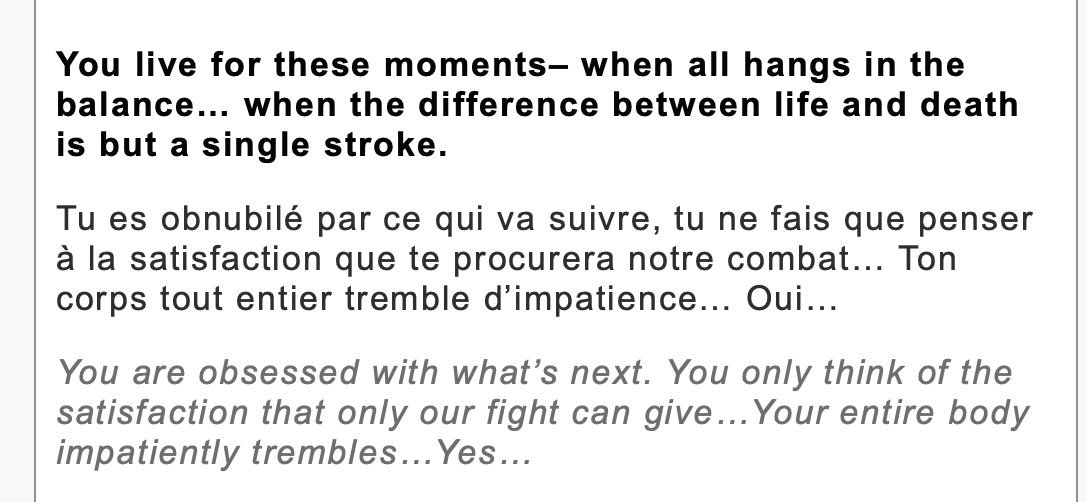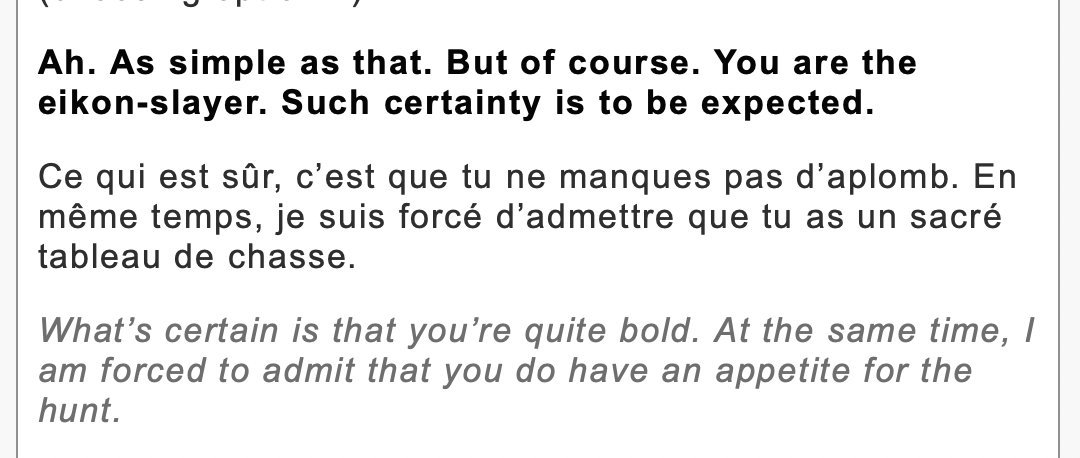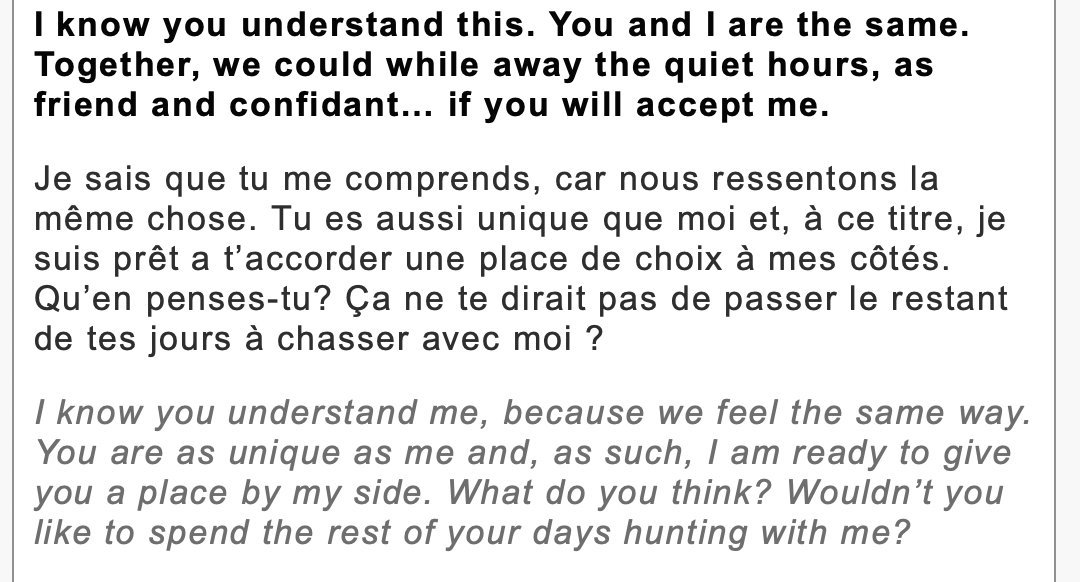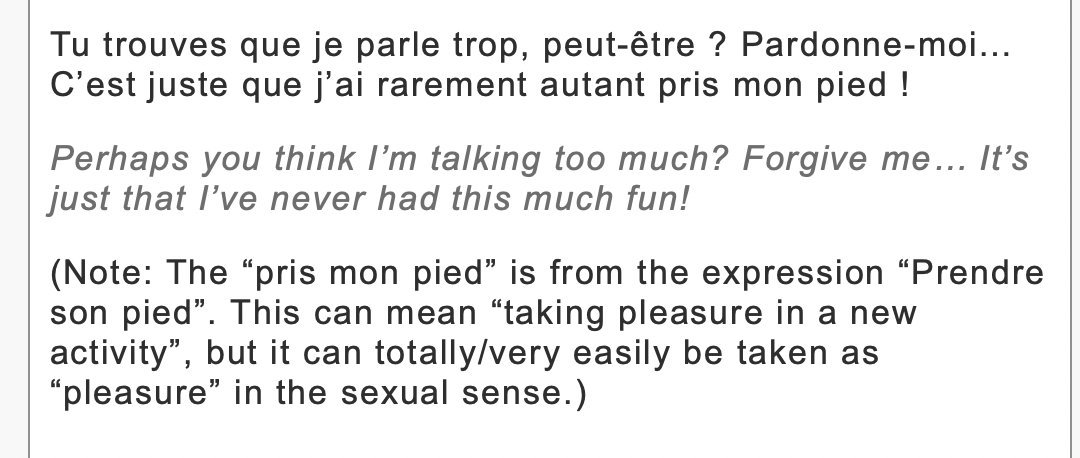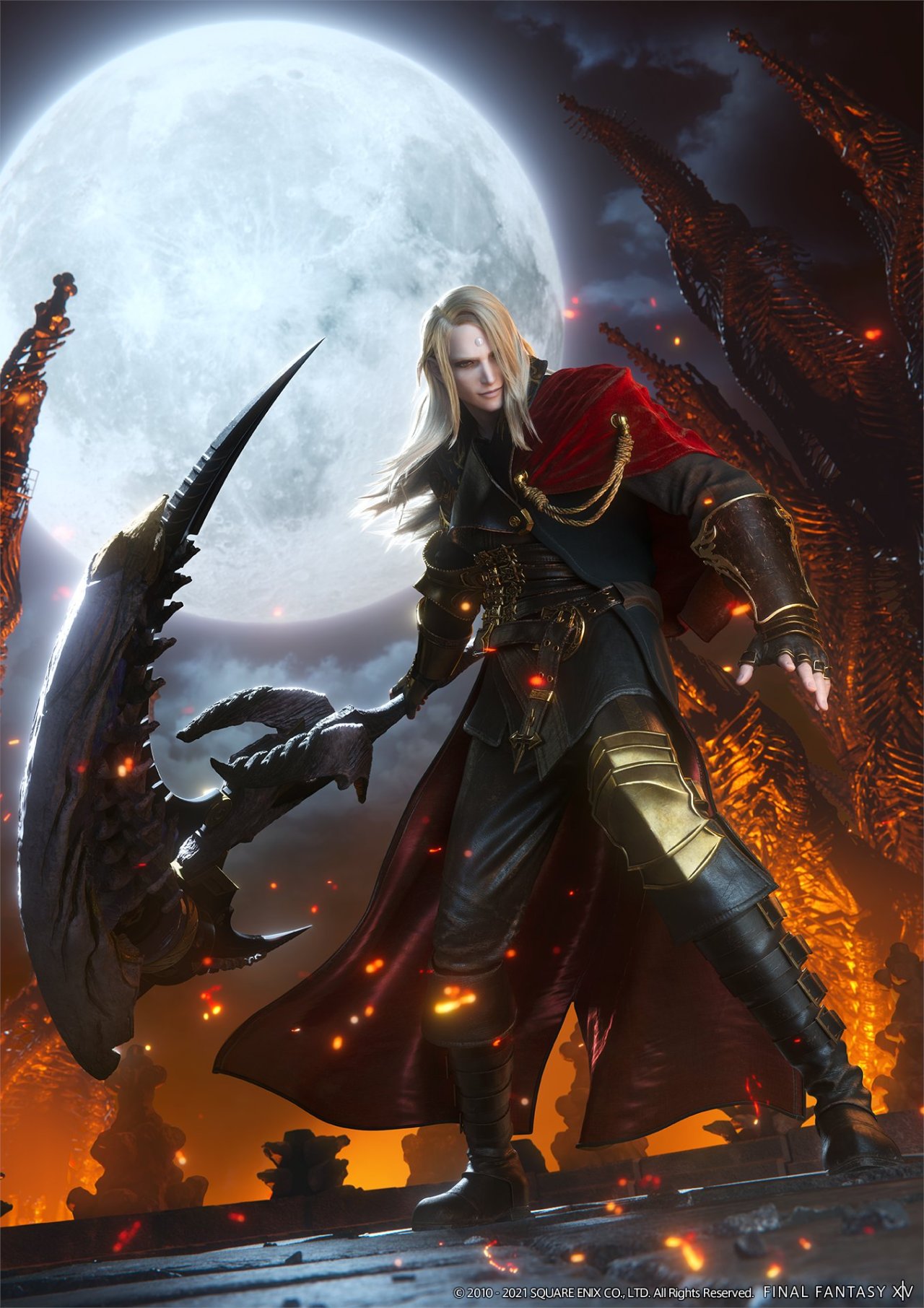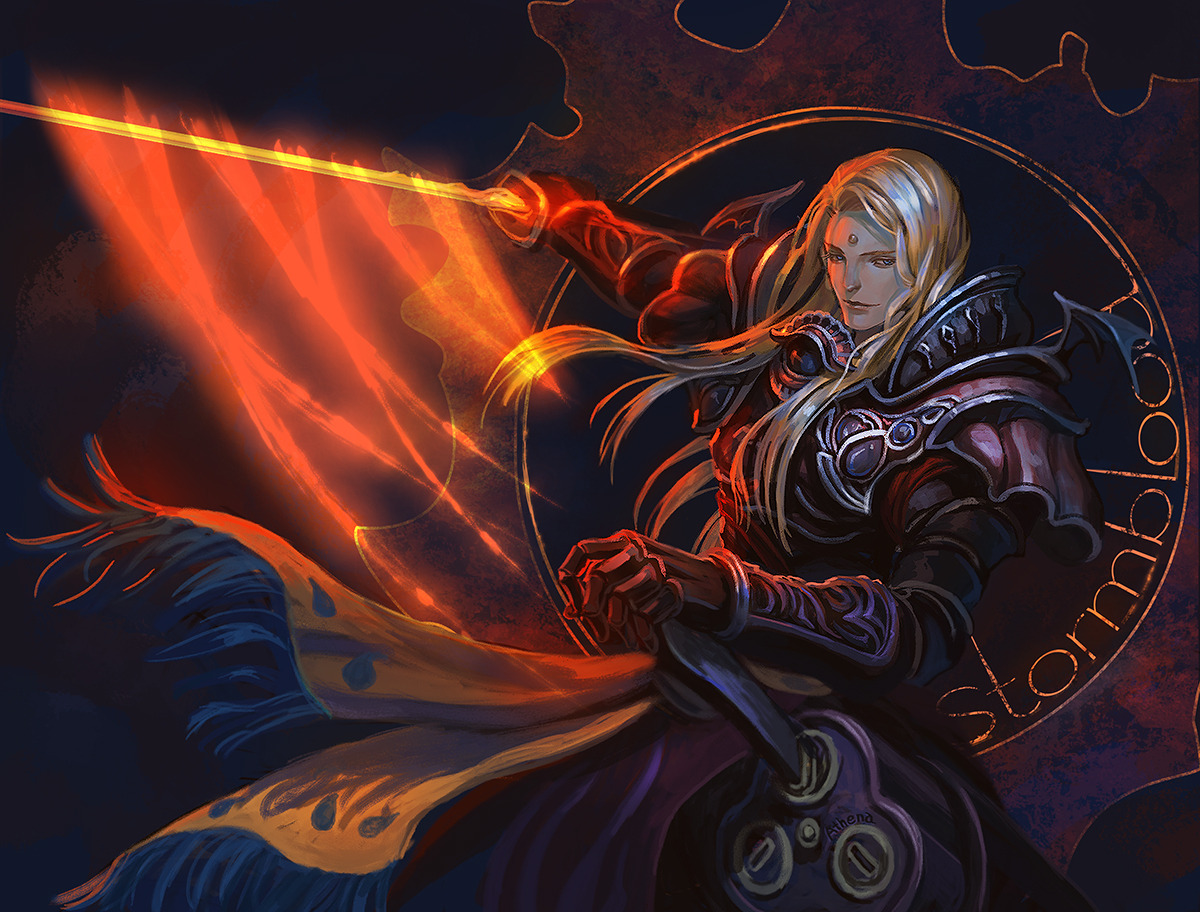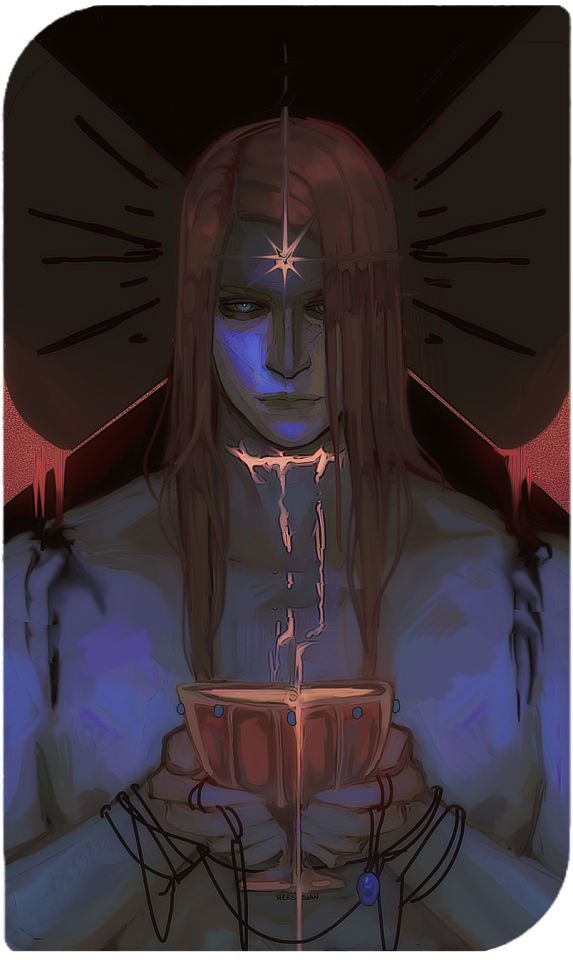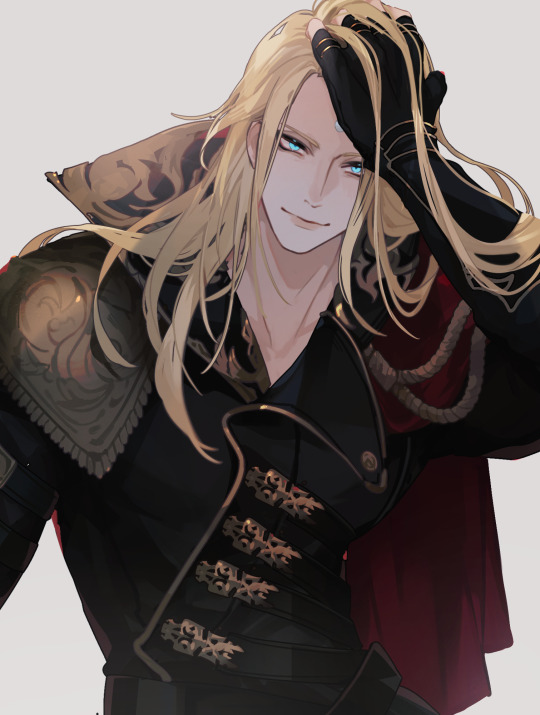Posted by ishgard on Tumblr
I want us to get to another reflection where, of course, there is a fan shittening happening, but the locals are just like "oh sure we'd appreciate your help but actually we've got a guy" and the guy is Zenos
Posted by picaroroboto on Tumblr:
For the past couple days, I’ve been unfortunately cursed with thinking about Zenos yae Galvus. I don’t even particularly like him - not that I dislike him either, Zenosfuckers you can put your scythes down - but it seems to me like a lot of the fandom either greatly misunderstands him, or doesn’t even care to try to understand him, which from an objective standpoint as someone who cares deeply about writing in video games kind of pisses me off. But I’m more pissed about the fact that I’m apparently going to keep thinking about this issue until I actually write a character analysis of him.
Q: “But, what even is there to analyze with him? Isn’t he all about wanting to fight the WoL and nothing else?”
Well, you wouldn’t be wrong with saying that. That motivation is at the forefront of his character, and even if you look closer, everything about him comes back to either “violence” or “lack of understanding of others”. But there are more meaningful sides to his deceptively simple character. That question of meaning is what I really want to look into - what does his character mean, what symbolic or thematic role does he play in this story?
Q: “Better question: why are you posting this on your art blog/Fate meta sideblog?”
Good question, with a stupid answer: I have all of 6 followers on my FF14 sideblog, and around 150 here. Let’s go under the cut so they don’t have to read a wall of text, unless they want to.
When you look at and compare FF14’s villains, you can see a very clear change, no doubts thanks to the change in main writers. ARR Gaius and Thordan are more or less two-bit villains - Gaius’s memeable iconic Praetorium speech gives us insight into how fascists try to justify themselves but little into Gaius’s actual personality, while all Thordan gets as far as depth of character is an NPC in a sidequest remarking that he wasn’t always a bad person and was probably doing what he thought best for his nation. Nidhogg is a little more understandable, since revenge is a relatable motivation to anyone who’s been hurt by others. In Stormblood, Zenos and Yotsuyu are both presented as deserving of pity even as they do terrible things. Come Shadowbringers and Endwalker though, the story takes a greater interest on why villains like Emet-Selch and Elidibus do the things they do, and the player is allowed more options to try to understand them and see how similar they are to the WoL. Hell, Hermes and the Endsinger are barely “villains” at all, with the level of sympathy the story shows them.
What I’m getting to here is that Zenos, with half his arc in Stormblood and the rest in Endwalker, is sort of caught in the middle of this shift. He played the role of the rival character in Stormblood really well, but come Endwalker, he’s standing on a stage full of heroes and villains with grand causes and deep motivations, as the guy whose sole motivation is fighting for pleasure.
It seems he’s not unaware of this contrast himself - when Jullus confronts him for ruining Garlemald for no good reason, he retorts with “Would you be happier had I a good reason?” Zenos makes no attempt to justify his own actions and doesn’t care that his reason seems incomprehensible and unforgivable to others. Yet in that same cutscene Alisaie hits him with the fact that if he keeps living solely for pleasure, he’ll die alone. When next we see Zenos, he’s alone at the Royal Menagerie waxing philosophical about what he really sought in the battle with the WoL.
See, what really motivates Zenos isn’t just the thrill of battle - this guy has gotten Battle High and the joy of human connection confused. Really.
Even before he gets so perturbed by the idea of dying alone, there’s other suggestions, like his proposal of friendship to the WoL when they fought in Stormblood, and then later his dying words in which he explains that he never understood others - at his core, he’s just lonely. I know there’s an official side story that tells it, but you don’t need to know the exact details to glean that he had some sort of tragic backstory. Sad, but not a surprise, considering he’s the prince of the Garlean Empire, raised to take the throne and continue the Empire’s legacy of violence.
At his core, he’s a very lonely person, but also a thing of violence, raised using violent methods for the purpose of causing more violence. Violence is how he lives and breathes - the only way he gets any sort of connection with others in a world of hurting and being hurt is the brief connection warriors dueling as equals can sometimes find. Don’t deny that this sort of connection exists - FF14 is great at making fights that are both fun and tell a story. Hence, why he goes crazy for the WoL, but also refers to them as “friend”. In their fights, he senses (or thinks he senses) similarity between him and them. Beneath all the madness is a pure, genuine joy in seeing the self reflected in the other…but he also instantly gets on the train to projection-town, population Zenos, and assumes the WoL is exactly like him, ignoring or failing to notice that they also fight for deeper meanings. The worst part is, he doesn’t even notice that what he’s actually seeking in fighting them is connection until Alisaie’s aforementioned callout.
So he goes and angsts for a while, then turns into a dragon again and flies across the universe to help us kick the Endsinger’s tail feathers, then issues his challenge for that duel he’d been longing for. But what’s changed is that he starts with a question - “Such pleasures you sought for their own sake, and for no other reason, is that not so?”. Dying after the duel, he’s full of questions too: “Was your life a gift or a burden? Did you find fulfillment?” Alisaie’s suggestion that he’d die alone actually spurred him to realize what he actually sought in the WoL, and now he’s asking all these questions in an attempt to, for the first time in his life, genuinely connect with another human being.
The questions aren’t important just because they’re a sign of how Zenos has changed in Endwalker - they’re actually the thematic heart of Endwalker!
ARR may have had “Answers” as it’s theme, but EW is the expac of questions. Namely the biggest question of all: What is the meaning of life? Different characters have different answers to that, leading to the grand-scale symbolic conflict being the Endsinger’s despair - her belief that there is no meaning in life - versus whatever reasons the WoL chooses to live for, left, as always, up to player interpretation.
When you look deeper, Zenos isn’t actually as out-of-place in the symbolic conflict as he first seems. His depressed worldview - that metaphor about drowning in a swamp again - seems to align with the Endsinger’s view about life being meaningless. But he aids the WoL in defeating her. In that way he serves as part of the answer to her question about the meaning of life. He may have resented life at times, but he still found meaning in chasing pleasure. Not the strongest or most beautiful reason to deny oblivion, perhaps, but it did enable him to help the WoL triumph. I think of Zenos’s philosophy as being connected to the concept of “Amor Fati”…largely because this quote explaining it sounds like something he’d say, or at least agree with on some level:
“and if our soul has trembled with happiness and sounded like a harp string just once, all eternity was needed to produce this one event—and in this single moment of affirmation all eternity was called good, redeemed, justified, and affirmed.”
So he does have a meaningful role in Endwalker, as the “Amor Fati” against the Endsinger’s “Memento Mori”. I think that in this the story shows that his reason for living, while somewhat shallow, is not necessarily a morally wrong thing in and of itself (setting aside for a second all the people he hurt in his pursuit of that). It’s just that, since it is a lonely pursuit that denies everything except for his target, it still feels empty. The core of the counterargument against the Endsinger’s despair is that both pleasure and fulfillment are necessary to live a meaningful life in a meaningless universe, and that’s why Zenos is here in Endwalker. Why he even exists in the story in the first place.
Even if you’re one of the people who deeply hates Zenos…well, you probably wouldn’t have read this whole thing if you did, but I still think it’s important to read into characters you dislike, because every character in a story is written for a reason. Plus, trying to understand even their worst enemies is one of the WoL’s key traits as of ShB and EW. With his last breaths, Zenos was trying to understand the WoL too - carrying this understanding of him with you as we move into our next adventures is the least you can do for your “friend”.
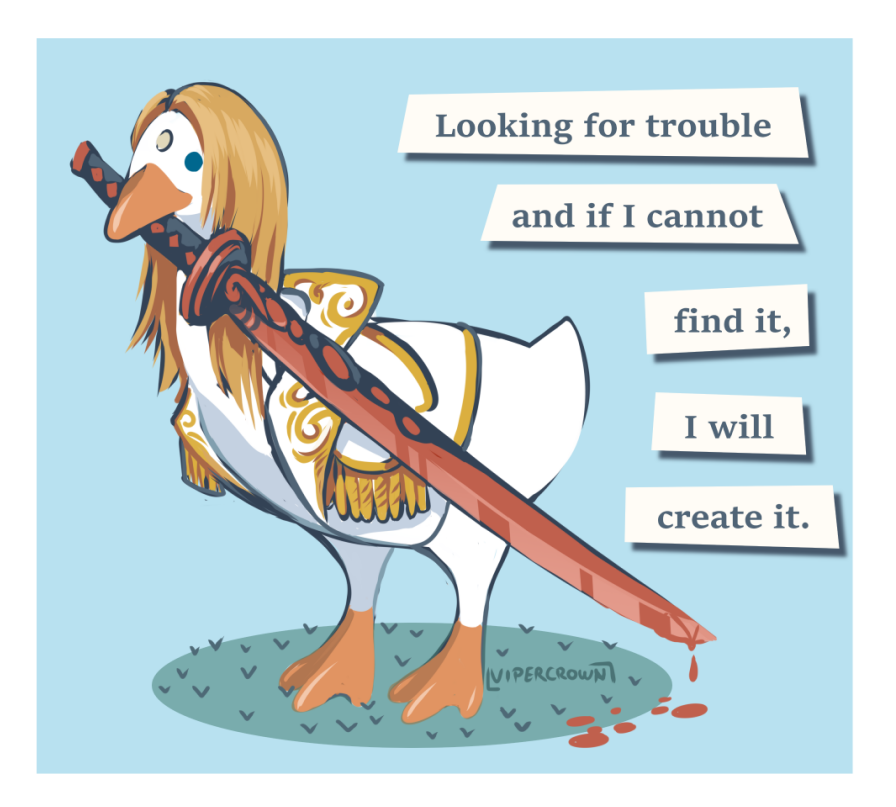
UNTIL
when Zenos shows up in the Ultimatum, the dialogue choice gives no option for the Warrior to side with, or even acknowledge that there is any sort of emotional bond between the pair, other than strictly adversarial. you either tell him he can die on your watch because you don’t care, or you tell him to go away.
that is the one time where confronted by dialogue choices that i truly despised both options and threw up my hands, exclaiming “what the fuck, game?!”
that whole end sequence with Zenos, both in the Ultimatum and in the final fight afterwards, should have been a fuck ton more ambiguous for how your Warrior feels about him. its the one time i felt both me and my Warrior were railroaded into a specific mindset that i did not appreciate.


- Elidibus refers to Zenos at one point as “an experiment”;
- It’s stated that Emet-Selch did something to Zenos but its never said exactly what, why, or when
- Fandaniel wonders out loud if Emet-Selch “could have found a way”
- Zenos has dreamed of the Final Days since he was a child
THEORY:
Emet-Selch was trying to find a way to restore the memories of Amaurot and their previous lives in the sundered who were not of the Convocation and thus did not have memory crystals to facilitate the process; and may have at least partially succeeded.
